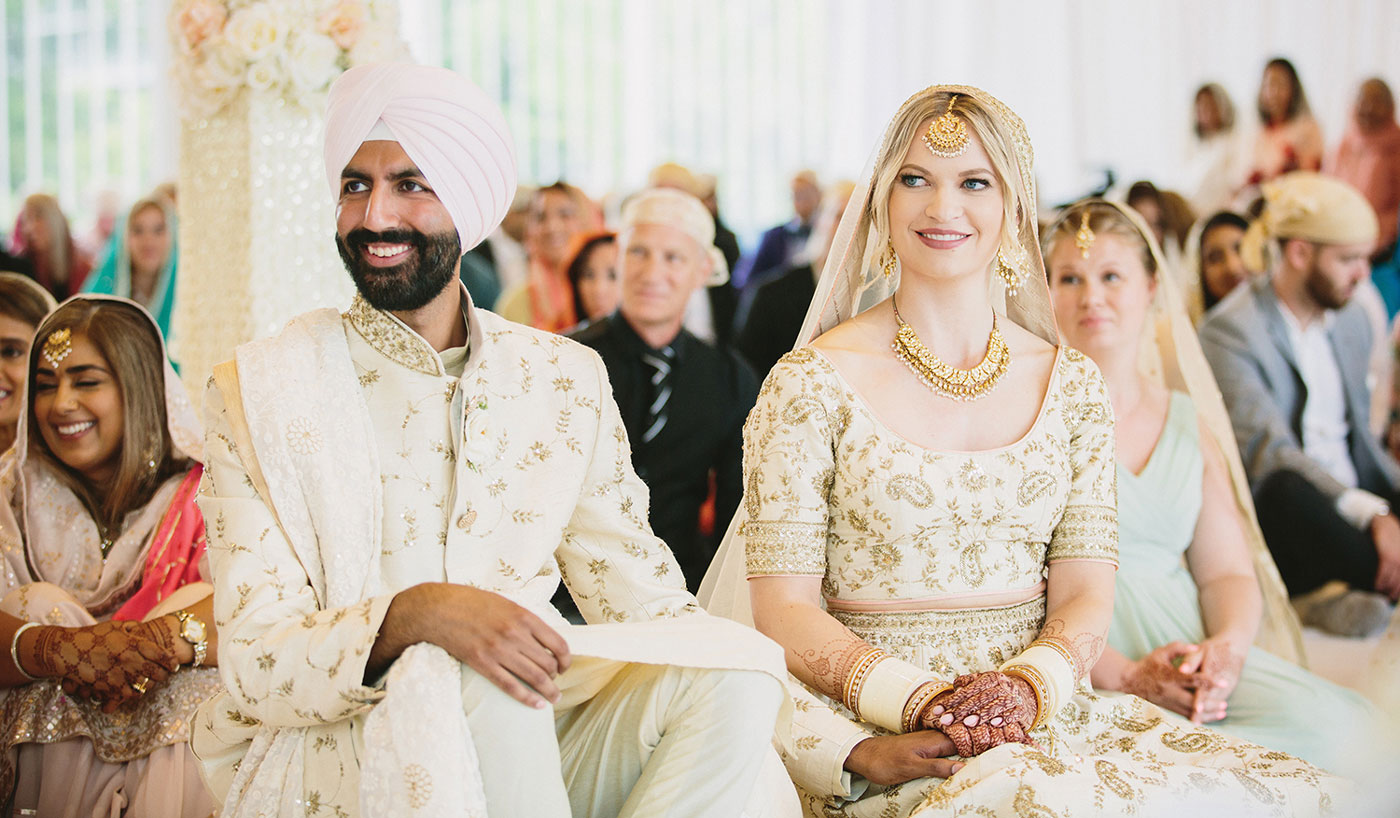When Imran Gill and Chelsey van Weerden (now Gill) were planning their wedding, they wanted to acknowledge their backgrounds: Punjabi and Dutch. To do so, they opted for a traditional Sikh ceremony followed by a Western reception on the same day, even though Indian weddings will typically split up the ceremony and reception over two days.
“Indian weddings are less about the couple and more about the family coming together,” Imran says. “But knowing two cultures were coming together, we wanted something more modern.”
But family was still an important focus, and the week leading up to the wedding in Vancouver, the couple and their families celebrated with a variety of Punjabi events.
“It’s a chance for everyone to get to know one another, because the wedding day goes by so fast,” Imran says.
His family hosted the sangeet ceremony with about 100 close family members, and incorporated the mehndi event, where women get their mehndi/henna art done. On the same night, Imran’s jaggo, consisting of people from his mother’s side of the family, kicked off an evening of dancing.
“It was really cool to see even Chelsey’s family doing bhangra throughout the night,” Imran says.
The day before the wedding, Imran participated in a haldi ceremony, where his relatives covered him in turmeric.
“It’s an old, Indian tradition that’s meant to be cleansing,” Imran says.
Their wedding day started with a traditional Sikh ceremony that included a pulla (scarf) ceremony to symbolize their commitment to each other, the reciting of four laavans (verses), and the exchanging of floral garlands. The Gills opted not to get married in a temple because they wanted to use their own officiant: Baltej Singh Dhillon, the first RCMP officer in Canada to fight for the right to wear a turban on the job. Dhillon delivered the ceremony in both English and traditional Punjabi dialectic.
“This gave the opportunity for everyone in the room to understand what was taking place,” Imran says.
